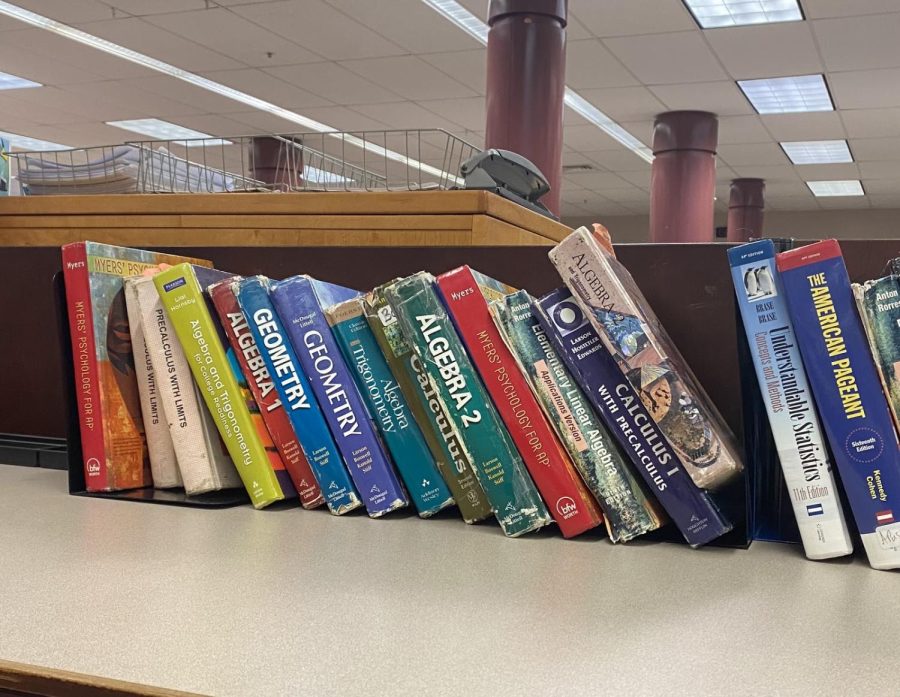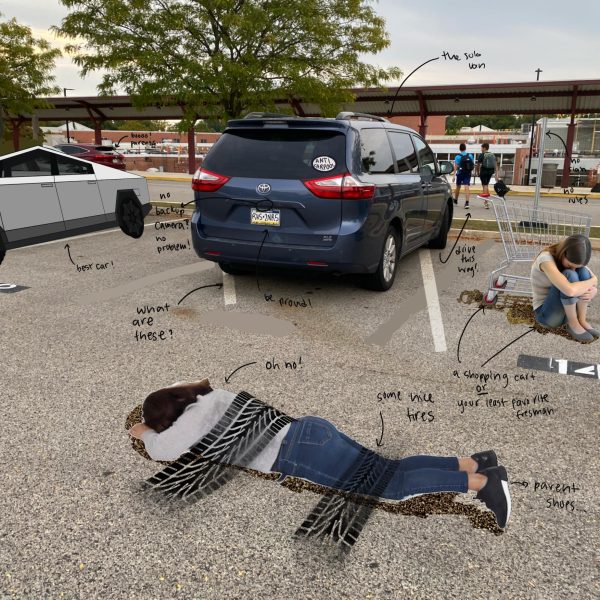The Study Guide on Studying
March 2, 2023
“Did anyone make a quizlet?” is a question you’ve probably heard before. Quizlet is one popular way to study, but there are numerous other methods. These methods typically vary from person to person, but some are better than others.
When researching studying, the most notable points made are that there’s a sweet spot for the amount of time spent studying, limiting distractions is important, and oftentimes people should study in groups. Additionally, other common mentions include utilizing notes, keeping healthy, not cramming, and planning efficiently.
At RHS, those methods are also utilized, based both on a survey taken by some RHS students and interviews conducted. Most students study between thirty minutes to three hours, but that range is large. Sophomore Abby Frey advises against over-studying: “Studying too long can sabotage you really hard, and if you study too much… you’ll just blank.” This leaves a contradiction in the minds of many students: studying too little can be ineffective, but studying too long is also possible.
One specific method students use for balanced studying is the 50/10 technique, which entails studying for fifty minutes and then taking a ten minute break. Taking breaks can lead to better productivity and overall impact of studying. An article on Oxford Learning recommends studying for only thirty minutes before taking a break! Additionally, spacing out your studying over multiple days instead of all in one night can be more effective and help you stay more focused, as an article on Edutopia explains. These studying sessions are also most effective without distractions.
Many things can cause distractions for students, but one that affects most people is noise. Whether it’s a need for noise or a lack of noise, both can make a difference. For many, a little bit of background noise like music is a good thing, but more can be very distracting. Abby says, “I usually watch a movie I’ve seen before in the background… just as noise.” When studying, she needs something playing in the background to focus—a movie she knows well can provide that.
Alternatively, Rebecca Goldberg, a sophomore at RHS, needs “a quiet environment to focus on studying.” She says, “Occasionally, when what I am doing is relatively mindless, I can listen to music, but that rarely happens.” That sentiment rings true for a lot of people. The study method that may work for someone else may not work for you.
There’s also the question of whether to study in a group. For this, it is mostly a balance of distractions and how helpful it would be to have people with you. “To study effectively and efficiently, I need to be alone,” Rebecca explains. “When I am studying with friends I find that I become distracted.”
But for others, like junior Anna Marie Glanzmann, it is more helpful than harmful. She prefers studying “with people, especially if they’re in the same class… because it helps [her] to feel focused and feel like [she is] actually doing something and not wasting time.”
If you can stay focused, it may be a good idea to study with others. It can be great for getting a new perspective on something you are learning or to keep you accountable for your studying, which an article on Reference.com explains.
Plus, of course, it’s important to stay healthy. Anna Marie says the worst thing for studying would be “to not sleep because if you don’t sleep, you can’t pay attention in class and actually learning what’s happening during class is the most important thing” when preparing for studying. Additionally, eating healthy is just as important. Along with giving you energy, it is important to keep on top of your general health when studying, and that includes eating enough.
Studying is hard, and that may make it seem intimidating. But it is also extremely important throughout your school career, and finding the combination of both common and personal methods of studying is extremely important. Just make sure to save enough time before your test to study—you will probably need it.








